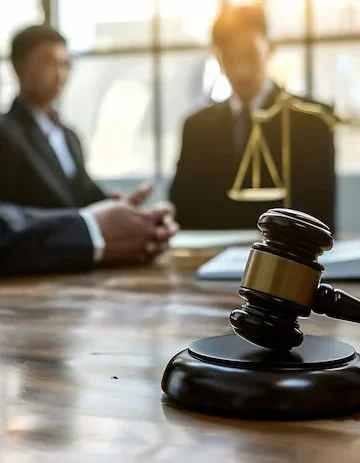Bankruptcy is one of the most significant financial decisions that an individual or company can face. It involves legal processes that provide relief from overwhelming debt while also carrying long-term consequences. Whether you are an individual struggling with personal debt or a business owner facing insolvency, understanding bankruptcy is essential to making informed choices. This article explores the meaning, procedures, implications, and practical aspects of bankruptcy in detail.
What is Bankruptcy?
Bankruptcy is a legal status declared when a person or business cannot repay their outstanding debts. In the UK, bankruptcy applies primarily to individuals, while companies may enter administration, liquidation, or other insolvency proceedings. Declaring bankruptcy offers protection from creditors, but it also involves restrictions on financial activity and can affect future creditworthiness.
Reasons People and Businesses Declare Bankruptcy
There are many circumstances that may lead to bankruptcy. Some of the most common include:
-
Job loss or reduction in income resulting in inability to repay loans and credit cards.
-
Unexpected medical costs or personal emergencies that drain savings.
-
Excessive use of credit without sustainable repayment plans.
-
Business downturns due to market shifts, poor cash flow, or loss of major contracts.
-
Unforeseen global or local events such as economic recessions or natural disasters.
Bankruptcy often comes as a last resort after other debt solutions, such as debt management plans or individual voluntary arrangements, have failed.
How Bankruptcy Works in the UK
In the UK, bankruptcy is managed by the Insolvency Service and typically lasts for 12 months. During this time, a trustee is appointed to manage the bankrupt’s assets and distribute proceeds to creditors. After completion, most debts are written off, although some obligations remain, such as court fines, student loans, and child maintenance.
The Bankruptcy Application Process
-
Filing for bankruptcy: Individuals apply online through the Insolvency Service, paying a set fee.
-
Assessment: The adjudicator reviews the case to determine if bankruptcy is the appropriate solution.
-
Appointment of trustee: Once approved, an official receiver or insolvency practitioner oversees the bankrupt’s financial affairs.
-
Asset handling: Valuable assets such as property, vehicles, and savings may be sold to repay creditors.
-
Discharge: After the bankruptcy period ends, the individual is discharged, and most debts are cleared.
Consequences of Bankruptcy
While bankruptcy provides debt relief, it also has lasting effects. Understanding these outcomes is vital before proceeding.
Financial Restrictions
-
Bank accounts may be closed or restricted.
-
Borrowing over £500 requires disclosure of bankruptcy status.
-
Some professional roles may prohibit bankrupt individuals from continuing employment.
Impact on Credit Rating
Bankruptcy remains on a credit file for six years, limiting access to mortgages, loans, and credit cards. Even after discharge, rebuilding credit can take time and requires careful financial management.
Loss of Assets
Homeownership, vehicles, and luxury possessions may be sold to repay creditors. Personal essentials, however, are usually protected.
Alternatives to Bankruptcy
Bankruptcy is not the only option. Depending on circumstances, other solutions may be more suitable:
-
Debt Relief Orders (DROs) for individuals with low income and minimal assets.
-
Individual Voluntary Arrangements (IVAs) where a repayment plan is negotiated with creditors.
-
Debt management plans offering more flexible repayment schedules.
-
Business restructuring to stabilise operations without entering liquidation.
Exploring alternatives before declaring bankruptcy can prevent some of the harsher consequences.
Bankruptcy and Businesses
When businesses face insolvency, the process differs from individual bankruptcy. Options include:
-
Administration: Protecting a business while restructuring debts.
-
Liquidation: Selling off company assets to repay creditors before dissolving the business.
-
Company Voluntary Arrangements (CVAs): Negotiating repayment terms with creditors while continuing operations.
Directors of insolvent companies may also face restrictions, including being disqualified from running future businesses if misconduct is found.
Life After Bankruptcy
Rebuilding financial stability after bankruptcy requires discipline and planning. Practical steps include:
-
Creating a realistic budget to prevent falling back into debt.
-
Opening a basic bank account to manage daily transactions.
-
Using credit-builder products to slowly repair credit history.
-
Seeking financial advice for better money management.
While bankruptcy affects credit for years, many individuals regain stability by adopting healthier financial habits.
Emotional and Social Impact
Bankruptcy is not just a financial event; it has emotional and social consequences. Feelings of failure, stress, and shame are common. However, bankruptcy should be seen as a legal mechanism for recovery rather than a personal defeat. Accessing support networks and counselling can help individuals cope with the psychological effects.
Key Considerations Before Filing for Bankruptcy
-
Evaluate all debt solutions before deciding.
-
Understand the full impact on assets, employment, and credit.
-
Seek advice from qualified professionals.
-
Consider long-term goals such as home ownership, business ventures, or career progression.
Frequently Asked Questions
Can bankruptcy clear all types of debt?
No. While most unsecured debts are cleared, obligations like student loans, child support, and criminal fines remain payable.
How long does bankruptcy last in the UK?
Typically, bankruptcy lasts 12 months. However, restrictions on financial activity can extend beyond this period in cases of misconduct.
Will I lose my home if I declare bankruptcy?
If you own property, it may be sold to repay creditors. However, each case is unique, and family circumstances are considered.
Can I travel abroad while bankrupt?
Yes, you can travel. However, if you move permanently, you must inform your trustee and provide updated contact details.
Is it possible to start a business after bankruptcy?
Yes, but there may be restrictions on being a company director. Rebuilding business credit can also take significant time.
Does bankruptcy affect my partner’s finances?
Your partner is not directly responsible for your debts unless they are joint debts. However, bankruptcy can affect shared financial arrangements like joint accounts or mortgages.



















